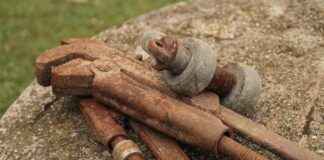The Waqf Tribunal, comprised of three members, has decided to embark on a fresh examination to unravel the complex issue surrounding the disputed land at Munambam. This decision comes in light of the conflicting arguments presented by the Kerala State Waqf Board and the parties contesting the claims, throwing the ownership of the property into question.
The tribunal highlighted that previous assessments conducted by the Kerala High Court and the Paravur Sub Court only delved into the existing ownership details of the property, emphasizing the need for further investigations to validate claims pertaining to its historical ownership. This move underscores the intricate nature of the dispute and the necessity for a meticulous review of all relevant documentation.
Despite this, the tribunal dismissed the Kerala State Waqf Board’s request to relocate all original documents associated with the land ownership and disputes from the Paravur court to Kozhikode. Instead, it advised the board to obtain certified copies of the documents from the court for any future legal proceedings. This decision adds a layer of complexity to the case, as it necessitates the board to navigate additional administrative hurdles in their pursuit of clarity.
In response to the tribunal’s directive, the Kerala State Waqf Board has opted to challenge the order regarding the transfer of documents by seeking recourse in a higher court. Legal counsel has been sought to support this move, with the rationale being that having access to the original documents would significantly bolster the board’s ability to substantiate their arguments. This legal maneuvering further underscores the high stakes involved in this dispute and the lengths to which the parties are willing to go in pursuit of a favorable outcome.
The roots of this contentious issue can be traced back to September 25, 2019, when the Waqf Board officially registered the Munambam land as ‘Muhammad Siddique Sait Waqf,’ alleging that the property had been alienated without their consent. However, the Farook College management, a key player in this legal saga, vehemently opposed this classification, asserting that the land was, in fact, a gift deed bestowed upon them by Siddique Sait. This fundamental disagreement lies at the heart of the ongoing legal battle, with each party steadfastly defending their respective claims to the property.
Fast forward to April 8, when the three-member Waqf tribunal in Kozhikode resumed hearings on the case, allowing the natives of Munambam to intervene in the proceedings. This development marks a significant turning point in the case, as it opens the door for additional perspectives and voices to be heard in the legal deliberations. The inclusion of local stakeholders adds a human dimension to the dispute, underscoring the real-world impact that the outcome will have on the community at large.
Amidst the legal wrangling, a surprising twist emerged as the grandchildren of Subaida, the daughter of Siddique Sait and the former owner of the 404-acre property in Munambam, altered their stance on the disputed land’s classification. Initially asserting that the land was a Waqf property, they subsequently reversed course, contending that the land they inherited was, in fact, a gift. This shift in position injects a layer of complexity and uncertainty into an already convoluted legal battle, further complicating the efforts to reach a resolution.
As the saga continues to unfold, the fate of the disputed land at Munambam hangs in the balance, with key stakeholders locked in a legal battle that pits competing claims of ownership against each other. The outcome of this dispute will not only shape the future of the property itself but also have far-reaching implications for all parties involved. Stay tuned as the story develops, shedding light on the intricate web of legal, historical, and personal factors at play in this complex land dispute.














